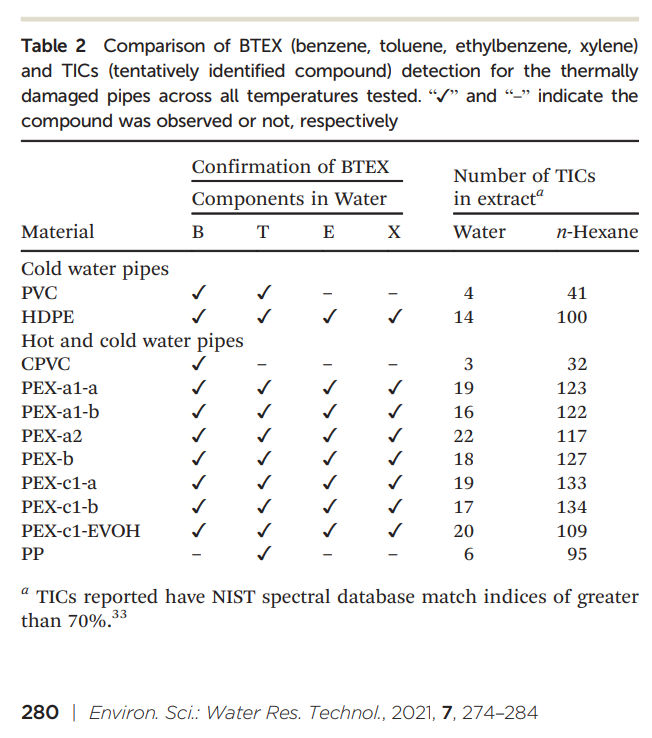Chemical Leaching from Plastic Pipes
Research published in the journal Environmental Research & Technology indicates that plastic pipes leach a wide range of hazardous volatile organic chemicals (VOC) into water when heated. A team from Purdue University tested 11 different types of plastic drinking water pipes from eight different brands, finding that 10 of the 11 released carcinogenic benzene into the water.
The report includes the adjacent table, which summarizes the presence of benzene, toluene, ethylbenzene, xylene, and other compounds across PVC, HDPE, CPVC, PEX, and PP pipes used for transport of water.
Chemical emissions became significant for PVC and CPVC pipes at around 300 degrees Celsius. For HDPE, PEX, and PP pipes started to break down at temperatures above 450 degrees Celsius. (Temperatures in house fires average around 600 degrees Celsius.)
The findings are significant primarily because they highlight risks of chemicals spreading from fire-affected pipes to contaminate water systems of other buildings, extending “beyond fire-prone regions to any structure fire where plastic pipes may have experienced elevated temperatures.” Testing after California wildfires showed high levels of benzene that persisted in community water infrastructure, rendering water unfit to drink for months.

